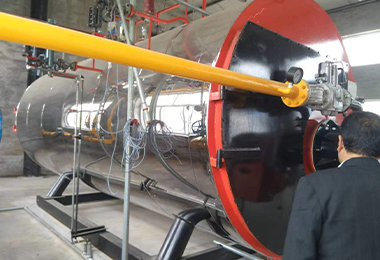
Nov . 22, 2024 00:07 Back to list
hot water oil boiler
Understanding Hot Water Oil Boilers A Comprehensive Guide
Hot water oil boilers play a crucial role in heating systems for residential and commercial properties. They operate by burning oil to heat water, which is then circulated through pipes to provide consistent warmth and comfort. Understanding their operation, advantages, and maintenance can help users make informed decisions regarding their heating needs.
How Hot Water Oil Boilers Work
At the heart of a hot water oil boiler is a burner that combusts oil to produce heat. The oil is typically stored in a tank located near the boiler. The combustion process generates hot gases, which pass through heat exchangers, transferring their heat to the water in the boiler. This heated water is then pumped through a network of pipes to radiators or underfloor heating systems throughout the building.
The system operates on a closed-loop mechanism. When the water moves through the heating system, it cools down, returning to the boiler to be reheated. The thermostat in connection with the boiler maintains the desired indoor temperature by regulating the burner’s operation.
Advantages of Hot Water Oil Boilers
1. Efficient Heating Hot water oil boilers are known for their efficiency, especially in colder climates. They can produce a high output of heat, ensuring that spaces are warmed quickly and effectively.
2. Durability Oil boilers often have a longer lifespan compared to other heating systems, such as electric or gas boilers. With proper maintenance, they can last for up to 20 years or more.
4. Reliability Oil heating systems are less susceptible to fluctuations in fuel supply compared to natural gas systems, particularly in remote areas where access to gas lines may be limited.
hot water oil boiler

5. Heating Capacity Hot water oil boilers can support larger heating loads, making them suitable for sizable residential properties and commercial establishments.
Maintenance of Hot Water Oil Boilers
Maintaining a hot water oil boiler is vital for ensuring its efficiency and reliability. Regular maintenance tasks include
- Annual Servicing It is recommended to have the boiler serviced by a qualified professional at least once a year. This service typically includes checking the burner, adjusting the combustion process, and cleaning the system.
- Checking Oil Levels Regularly monitor the oil levels in the storage tank and schedule refills to prevent running out of fuel, which could lead to inefficient heating.
- Inspecting for Leaks Check for any signs of oil leaks around the boiler and pipes. Prompt repairs can prevent potential environmental hazards and improve system efficiency.
- Flushing the System Over time, sediment can build up in the boiler and pipes. Flushing the system can enhance its efficiency and extend its lifespan.
- Monitoring Pressure Levels Maintaining proper pressure levels is essential for boiler operation. If the pressure is too low or too high, it could indicate underlying issues that need addressing.
Conclusion
Hot water oil boilers are efficient, reliable, and durable heating solutions that can meet the demands of various properties. By understanding how these systems work, their advantages, and the importance of regular maintenance, homeowners and businesses can ensure their heating needs are met effectively. Investing in a hot water oil boiler not only guarantees warmth during the colder months but also represents a prudent choice for long-term heating comfort.
-
High-Efficiency Commercial Oil Fired Steam Boiler for Industry
NewsJul.30,2025
-
High-Efficiency Biomass Fired Thermal Oil Boiler Solutions
NewsJul.30,2025
-
High Efficiency Gas Fired Thermal Oil Boiler for Industrial Heating
NewsJul.29,2025
-
High-Efficiency Gas Fired Hot Water Boiler for Sale – Reliable & Affordable
NewsJul.29,2025
-
High Efficiency Biomass Fired Hot Water Boiler for Industrial and Commercial Use
NewsJul.29,2025
-
High-Efficiency Biomass Fired Hot Water Boiler for Industrial Use
NewsJul.28,2025
Related PRODUCTS






















